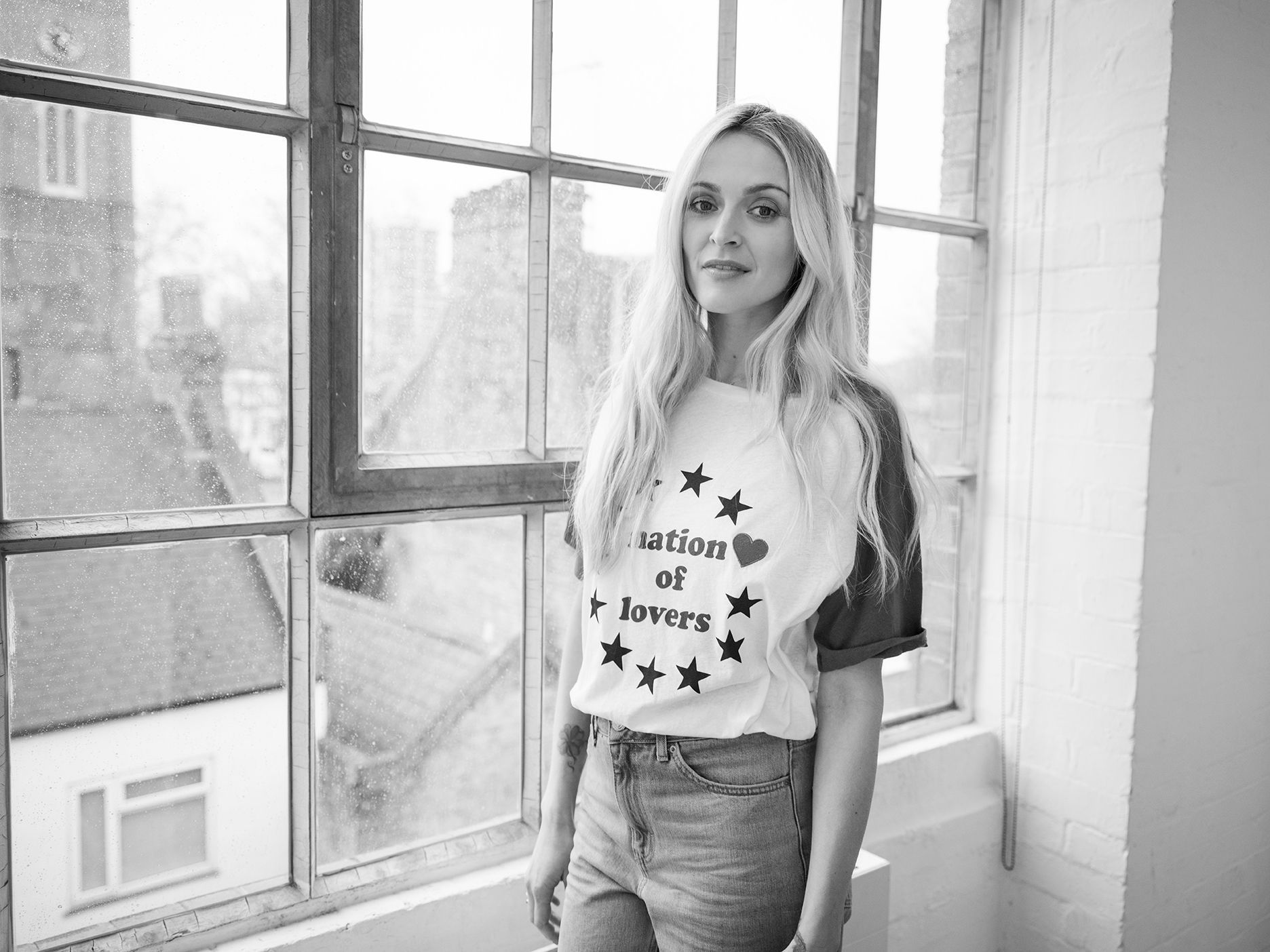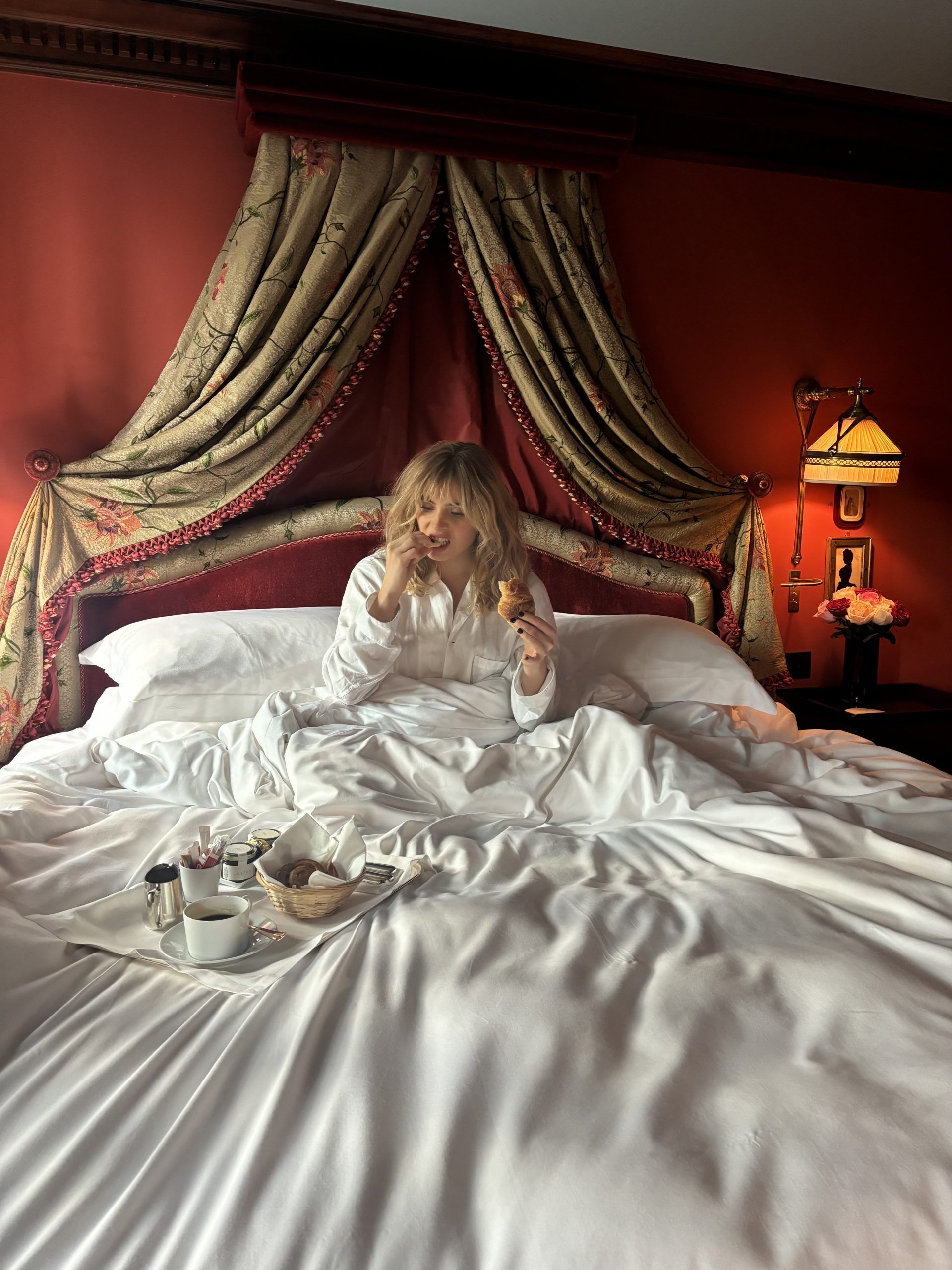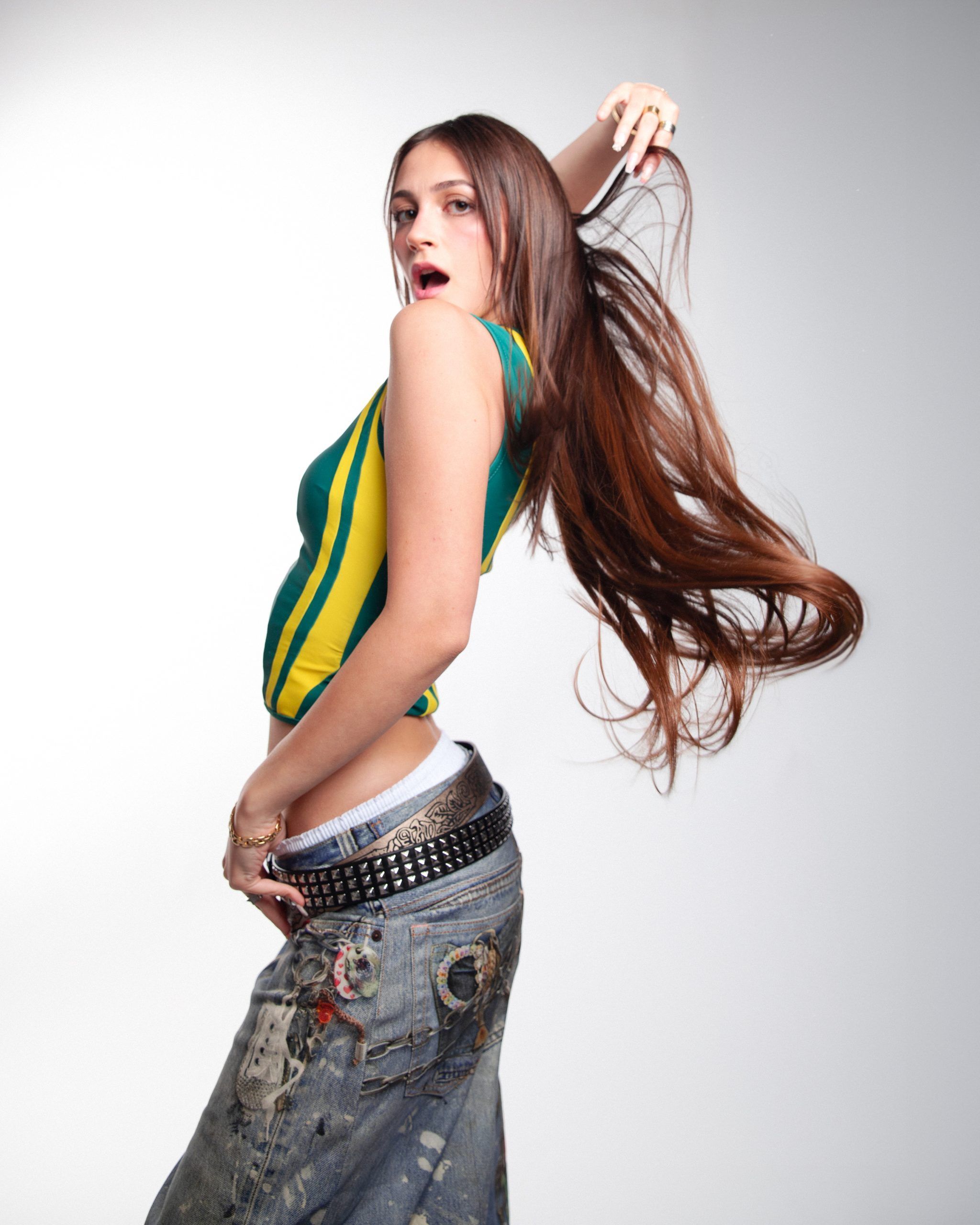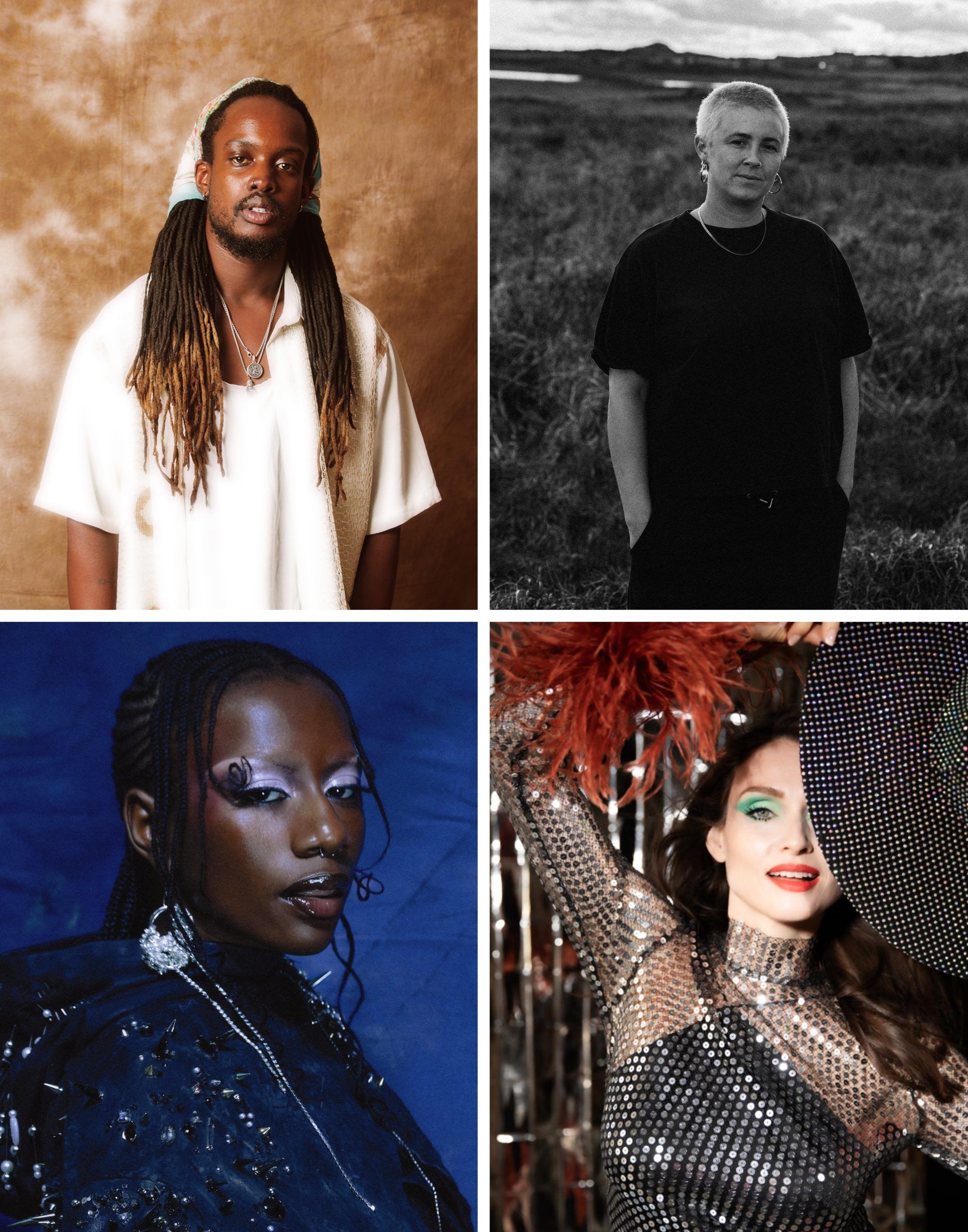Writing is a solitary pursuit — a place for people to retreat, serving as a safe haven for those looking for refuge. Some stories appear in a writer’s mind and just never go away, begging to be written. And with her new book Scripted, Fearne Cotton found a place where her imagination could run wild. The book focuses on Jade Shaw, a woman who isn’t in control of her life — she’s pushed around by her family, partner, friendships, job, and beyond — and doesn’t feel like she has the strength to push back. That all changes once she finds a script that begins predicting scenarios that haven’t exactly happened yet.
Although Scripted is by no means pulled directly from Cotton’s life, there are instances throughout which any woman can relate to — being spoken down to, belittled, or just completely disregarded. And for someone who has been at the forefront of British media for the majority of her life, writing has become a place where Cotton can flex new muscles while also touching on topical themes impacting women everywhere.
In conversation with 1883, Fearne Cotton discusses writing Scripted, finding freedom through writing fiction, and more.
You lived within the book and with Jade — between writing and editing it — for two years. Now that it’s out, how are you feeling?
It’s been really, really good. We’ve been on a book tour over the last little bit so I’ve avoided any feedback or whatever. What people have said to me, though, has been such a joy. Writing is a strange, solitary process that you forget people are going to read it. It’s been good to get it out there.
You’ve been in the public eye for about 26 years which must be crazy to think about. I’m not sure if this resonates with you, but after being in broadcasting for so long, did writing feel like a safe space for you?
Yes, that is exactly why I enjoy the process so much. By nature, I am an introvert in the truest sense. Writing is the ultimate escapism for me, especially with fiction as I’ve written a lot of nonfiction [books] before. I just dived into this world I created and there was so much relief in being able to just ditch my actual life for a couple of hours. With broadcasting, you have so little control over things but with writing you have a blank page and you can do whatever the hell you want. I don’t take that for granted.
Yeah, with broadcasting, one little thing you say can be taken out of context and fixated on. Writing must’ve been like a nice retreat from that.
Absolutely. It’s hard to take something out of a full body of work that has to be read in its entirety. This book is full of fictitious characters that I’ve loved tinkering around and playing with, but there are elements of things I’ve experienced but that’s the extent of it.
It must’ve been nice to detach from that [world of broadcasting] and be able to create something that is separate from yourself entirely. There is freedom in that — in crafting something that has nothing to do with your face or your voice.
Yes, and I think that’s a big part of it. For me, as a woman, you’re judged on what you’re wearing and what your personality is like, and it can be toxic. The individual can feel a lot of pressure. It felt freeing because these books didn’t have anything to do with my personality or whether I’ve said the right or wrong thing. If you like it, I’m over the moon. If you don’t, that’s absolutely okay. We all like different books and genres.

Writing has always felt like a second career for me because I was always doing other things alongside it, so I always avoided putting the ‘writer’ label on me which definitely stems from impostor syndrome. Is that something you dealt with?
Definitely, less so now in nonfiction writing because I’ve written a lot of it but with fiction… You almost feel like an outsider. Everyone feels more qualified than you until you start chatting with them and everyone feels like that at first. Everyone worries they aren’t good enough because everyone has extreme anxiety about their project because it feels so personal. It’s been really nice to make new friends, chat with new people and move into a new circle. I really like that switch and I love learning more.
Again, there is so much freedom in that! I’m halfway through the book now and it’s been wonderful to see Jade gain more and more confidence by learning to stand up for herself. Did you find it therapeutic to write those scenes?
I did because I think, like most people, I’ve definitely had times where I’ve struggled to say no but I’ve said yes. Sometimes that’s less to do with the other person and more to do with my own inner monologue — “Do I deserve to say no?” It’s all about self-worth and, at the end of the day, I think most of us struggle with that. I wanted to try and tackle this in all levels [in the book]. I wanted to include her romantic and familial life and her work environment so everyone reading it could hopefully find an element of truth in it. I haven’t experienced everything Jade has, but I know someone has experienced at least one thing that she does [in the book].
It’s definitely a universal thing, especially for women. I know you’ve avoided reading reviews, but I do want to say lots of women have enjoyed the “hell yes!” moments as Jade finally stands up for herself. What do you hope women in particular — especially those in their early 30s like Jade is — take away after reading the book?
That we can all change our lives. It started with realizing we’ve got a lot more autonomy than we think we have. We aren’t stuck in a job, relationship, or toxic friendship. I’m fascinated by roles that we take on in life and I think you’re morphing into an iteration of ourselves depending on who we surround ourselves with. Depending on their personality, we might be different with one friend than we are with our work mates or something similar.
I also want people to realize that that’s changeable. The dynamic might’ve always been one way, but you can change. It might ruffle reathers but that’s for other people to content with. It’s about boundaries and learning to say know, and knowing that you have the right to speak up. That’s my main message. I made Jade 32 because I thought it’s a really interesting age because it’s when a lot of pressure seems to ramp up for women and specific milestones. I think if I had learned all these lessons at 32, I would have saved myself with drama. I’m learning these lessons in my 40s. I would’ve loved to have a catalyst like Jade did with the scripts!
I’m turning 32 this year so I feel like you’re setting the stage, thank you!
Yes! Save yourself 10 years of hell!
Was there any other media — films, albums, other books — that you listened to while writing Scripted?
One of the first things I did probably just after I finished the first draft was make a playlist. It’s full different songs that I can either envisage Jade listening to, almost like a film. There’s a part where she lies in the sea in Dorest and in my head, there’s a Fleet Foxes song playing. It was all very cinematic which helps me set the tone. Four Weddings and a Funeral was a big inspiration for the wedding scene, mostly because weddings are where people can be the most exaggerated versions of themselves. That was really fun. The rest was less cultural and more fixating on tiny, tiny moments of my life. There’s a bit about sunflowers in the book and that’s because I was driving past a sunflower field and it was raining and they all have their heads tilt down like they were sad. It was just one of the most beautiful and weird things I’ve seen in ages and that inspired a whole section of book.
I love when you’re existing with a character for so long that you start to imagine little details or their lives, like what cereal they’d be picking in Tesco.
Me too! And you start to really get to know them to the point where you’re not writing what you think would be the best wording, but the best thing they’d say based on their personality, or what they are wearing or feeling. I want all of my characters to feel like real people and I can only hope the reader feels the same. I’m writing a novel now and I hope that would be a skill that continues, but it’s certainly something that felt like an incremental getting to know them process and one that I enjoyed greatly.
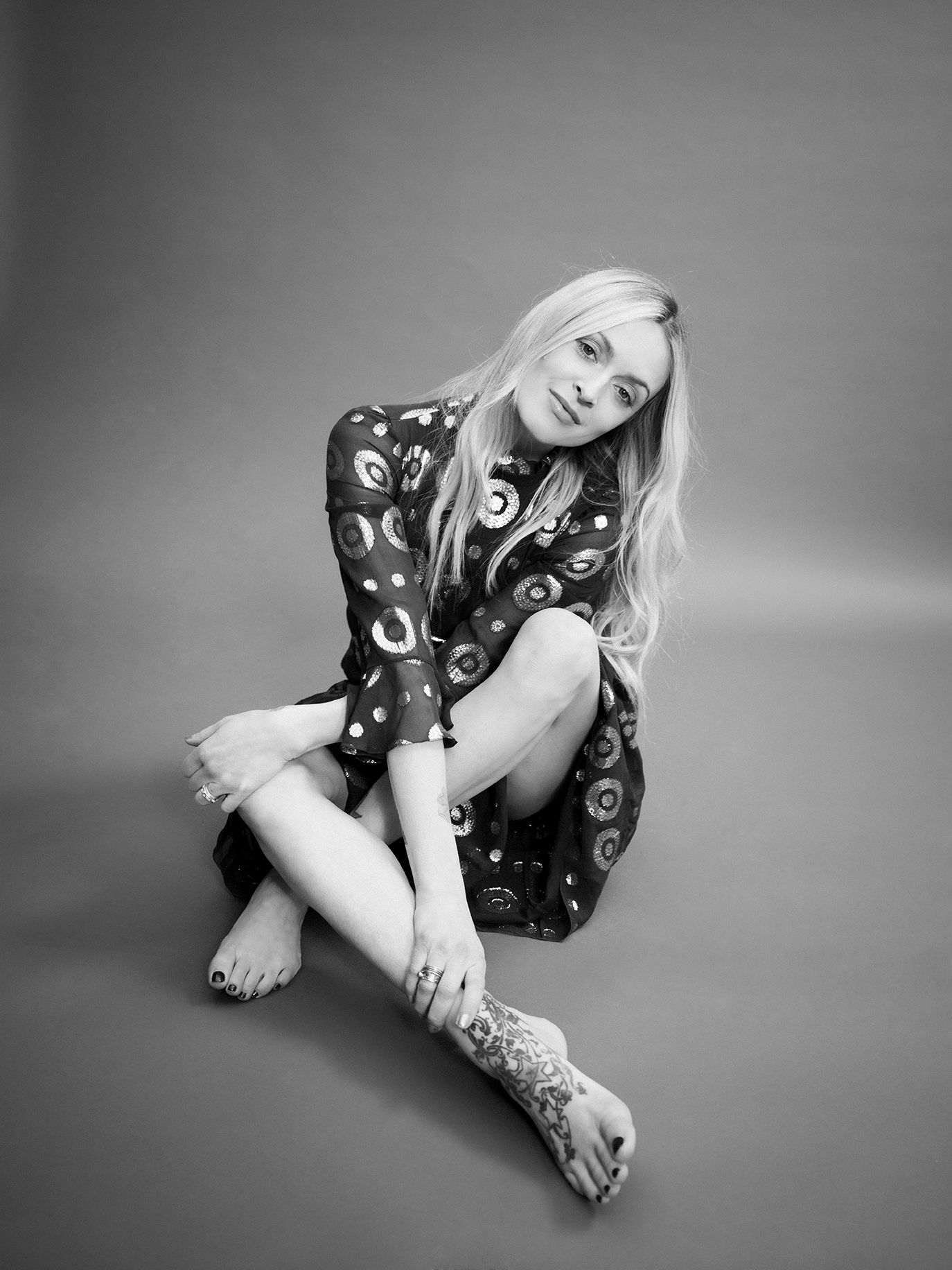
Scripted by Fearne Cotton is available now.
Interview Kelsey Barnes

